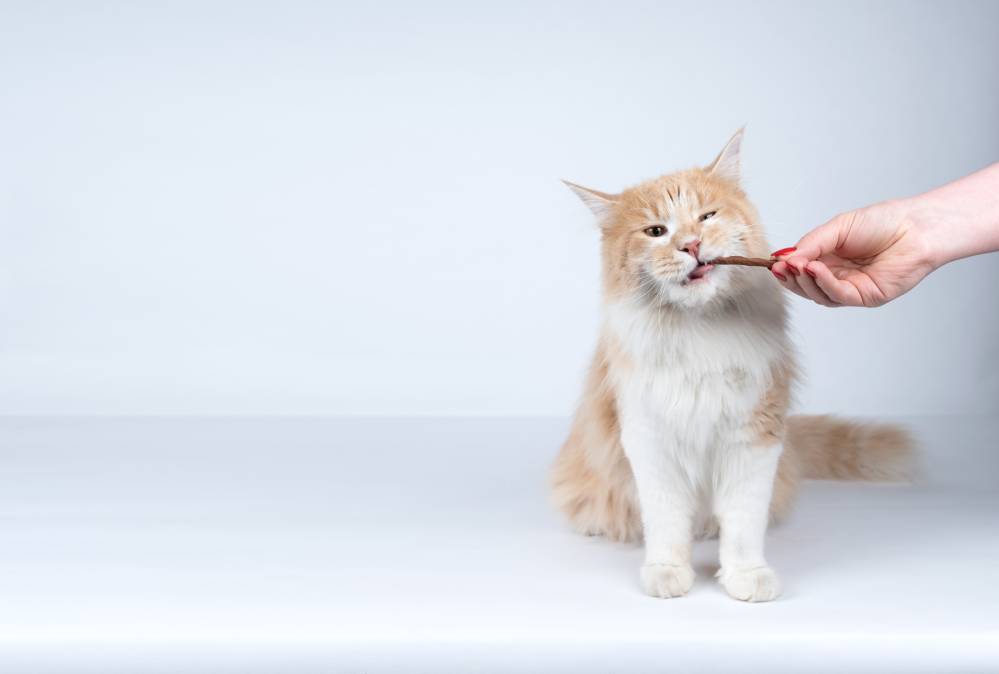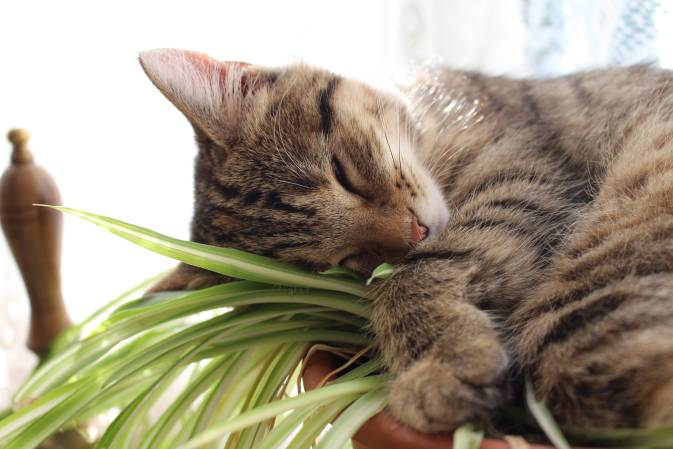Connect with a verified veterinarian in minutes. Licensed vets are available 24/7 to answer your questions. No need to worry about your furry family member.
Has your cat eaten some beef jerky? Are you worried the beef jerky will make your cat sick? If so, then you’ve come to the right place! We understand it can be scary when our cats eat something they maybe shouldn’t have!
In this article, we’ll take a quick look at beef jerky and whether or not it can make your cat sick. Let’s get started!
What is Beef Jerky?
Beef jerky is another one of those foods that’s been around for thousands of years. Scientists have found jerky in the tombs of ancient Egyptians. Jerky was also made in the Americas by the Native Americans, including the Quechua people. They called it “Ch’arki,” which literally translates as “dried meat.” The Native Americans made a form of jerky called pemmican, which was dried meat mixed with animal fat and fruit. So, jerky has been around for a very long time.
Jerky was originally dried meat, which sometimes contained different flavorings. The ancients made jerky as it was a way to preserve the meat. Today, jerky is considered more of a treat rather than a main dish.
Beef jerky is one of the main types of jerky eaten in the US. Today’s beef jerky isn’t just dried meant, however. It usually includes other ingredients for flavoring and preserving.
Is beef jerky safe for cats to eat? Can beef jerky make cats sick?
Beef Jerky & Cats
The good news is that beef jerky is not toxic to cats in small amounts as a rare treat. Your cat is a carnivore and is designed to be able to digest meat. So, if your cat has eaten some beef jerky, chances are he will be OK. If he ate a little more than a small amount, it’s possible your fur baby could be very thirsty afterward. This could be caused by the amount of salt found in beef jerky.
Depending on what has been used to flavor the jerky, there’s a possibility that beef jerky could make your cat sick. This is because the dried meat may contain garlic or onion powder, preservatives, and more that could make a cat sick. Beef jerky may also contain a very high amount of salt, which is also toxic to cats.
Cats that eat a large amount of beef jerky could suffer from digestive upset, which includes vomiting, diarrhea, and nausea. If your cat suffers these symptoms after eating a lot of beef jerky, then it’s best to call the vet. The concern is that your cat could become dehydrated. He could also develop symptoms related to ingesting garlic/onion powder and salt.
So, if your cat has stolen a small piece (or even a whole) of beef jerky, chances are he will be OK! Just monitor him for digestive problems. And be sure to call the vet for any concerning symptoms or for diarrhea/vomiting that lasts longer than 24 hours.
Connect with a verified veterinarian in minutes. Licensed vets are available 24/7 to answer your questions. No need to worry about your furry family member.

Emma Chandley, BVetMed MRCVS PGCertSAS
This article has been reviewed and approved by an independent Veterinarian: Emma graduated from the Royal Vet College in London in 2011. She has a keen interest in surgery and went on to do a post graduate certificate in small animal surgery and was then awarded advanced practitioner status in the same discipline.
Review symptoms, medications & behavior to keep your pets healthy with a Vet Online in just minutes.
Ask a Vet Live Now





